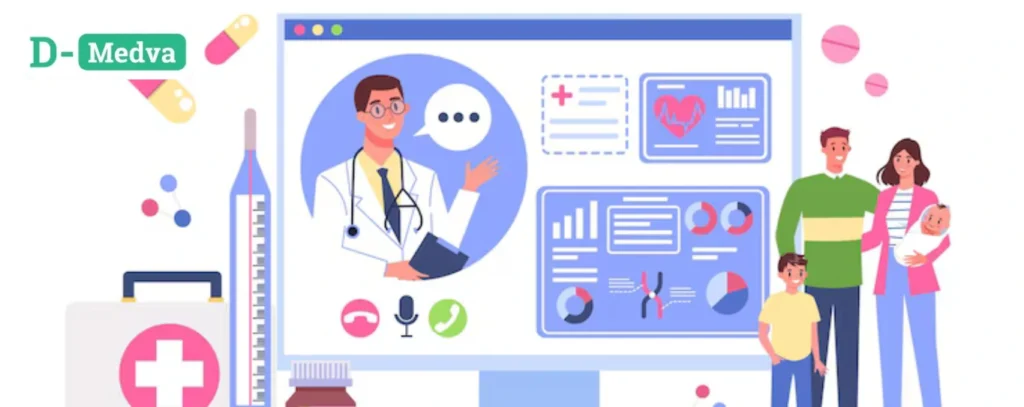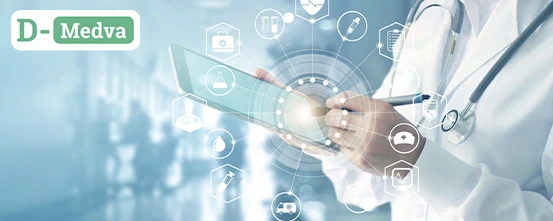How Healthcare CRM is Transforming Patient Experience in 2025
Healthcare has undergone a significant transformation in recent years, driven by advancements in technology and the growing need for personalized patient care. One of the most impactful innovations in this field is the integration of Healthcare CRM. Traditionally associated with businesses that focus on customer engagement and retention, healthcare CRM has now become a cornerstone of modern healthcare. It enables healthcare providers to manage patient interactions efficiently, streamline administrative processes and enhance the overall experience of care recipients. With 2025 marking a new era in patient centric healthcare, healthcare CRM is proving to be a gamechanger in optimizing services, improving communication and fostering trust between providers and patients. Enhancing Patient Engagement Through Seamless Communication One of the most notable ways healthcare CRM is transforming healthcare is by improving patient engagement. By incorporating artificial intelligence and data analytics, healthcare CRM provides personalized health recommendations based on patient history, ensuring individuals receive care tailored to their unique needs. Efficient Management of Patient Records and Data Security Efficiency in managing patient records is another key improvement brought about by healthcare CRM. In previous years, the healthcare industry struggled with fragmented recordkeeping systems that often led to delays in treatment and miscommunication among medical teams. In 2025, healthcare CRM has evolved to integrate electronic health records seamlessly, allowing for centralized data management. With advanced security measures in place, patient information remains protected while being readily accessible to authorized personnel. This streamlined approach reduces administrative burden and ensures that healthcare professionals can focus more on patient care rather than paperwork. As a result, both patients and providers benefit from a more organized and efficient healthcare system. Revolutionizing Telehealth Services Healthcare CRM has also played a crucial role in enhancing the quality of telehealth services. Virtual healthcare has become an essential component of modern medicine, allowing patients to receive consultations and follow ups without the need to visit a physical facility. The integration of healthcare CRM with telemedicine platforms has improved scheduling processes, ensuring that virtual appointments are well coordinated and effectively managed. Additionally, healthcare CRM allows healthcare providers to track patient progress remotely, offering timely interventions when necessary. The ability to access comprehensive patient histories during virtual consultations ensures that medical professionals can make informed decisions, improving the overall effectiveness of remote healthcare services. Personalized Care Through Advanced Data Analytics Personalized care is another area where healthcare CRM has significantly contributed to transforming patient experiences. Traditional healthcare models often adopted a generalized approach, which sometimes overlooked the unique needs of individual patients. In 2025, healthcare CRM leverages data analytics and machine learning to deliver personalized treatment recommendations based on past medical history, lifestyle factors and genetic predispositions. This approach empowers patients by providing them with customized health plans that align with their specific conditions and preferences. By making healthcare more patient centric, healthcare CRM enhances treatment adherence and improves health outcomes. Improving Coordination Among Healthcare Providers In addition to personalized treatment plans, healthcare CRM also improves coordination between healthcare providers. Patients experience smoother transitions between different levels of care, leading to a more seamless and effective healthcare journey. Promoting Preventive Care and Early Intervention Another significant benefit of healthcare CRM is its ability to enhance preventive care. Many health issues can be managed more effectively when detected early and proactive health management plays a vital role in reducing the burden on healthcare facilities. Healthcare CRM analyzes patient data to identify individuals at risk of developing chronic conditions and provides timely alerts to both patients and providers. By encouraging regular screenings, lifestyle modifications and timely interventions, healthcare CRM contributes to healthier populations and lower healthcare costs in the long run. Patients feel empowered to take charge of their wellbeing, knowing they have access to a system that supports their health goals. Enhancing Patient Feedback and Continuous Improvement Patient feedback plays a crucial role in shaping the quality of healthcare services and healthcare CRM has streamlined the process of collecting and analyzing patient experiences. In the past, gathering feedback was often limited to surveys conducted at medical facilities, which did not always provide comprehensive insights. In 2025, healthcare CRM enables real time feedback collection through digital platforms, allowing healthcare providers to monitor patient satisfaction levels continuously. Advanced analytics tools interpret feedback trends, helping institutions identify areas for improvement and implement necessary changes promptly. This continuous loop of feedback and improvement fosters a patient centered approach, ensuring that healthcare services evolve to meet the needs and expectations of the individuals they serve. Ensuring Data Security and Privacy in a Digital Age Data security and privacy have been primary concerns in the healthcare industry, especially with the increasing reliance on digital platforms. Healthcare CRM in 2025 has addressed these challenges by incorporating robust cybersecurity measures to safeguard patient information. Encryption protocols, multi factor authentication and blockchain technology ensure that sensitive data remains protected from unauthorized access. Compliance with data protection regulations has also improved, instilling confidence among patients that their medical information is secure. By addressing security concerns effectively, healthcare CRM contributes to building trust between patients and healthcare providers, further enhancing the overall patient experience. The Future of Healthcare CRM and Continuous Innovation The integration of Healthcare CRM with emerging technologies continues to drive innovation in the healthcare sector. Artificial intelligence powered chatbots assist patients with common inquiries, reducing wait times and enhancing accessibility to healthcare information. Wearable devices connected to healthcare CRM provide real time health monitoring, alerting healthcare providers of any concerning trends in a patient’s vital signs. Predictive analytics help identify potential health risks before they escalate, allowing for timely interventions. These technological advancements work together to create a healthcare ecosystem that is more proactive, efficient and responsive to patient needs. Looking ahead, the future of healthcare CRM appears promising as continuous advancements in technology further refine its capabilities. The adoption of cloud based solutions has increased accessibility to patient data across different healthcare networks, ensuring continuity of care regardless of location. Integration with artificial intelligence is expected to enhance predictive analytics, enabling even




